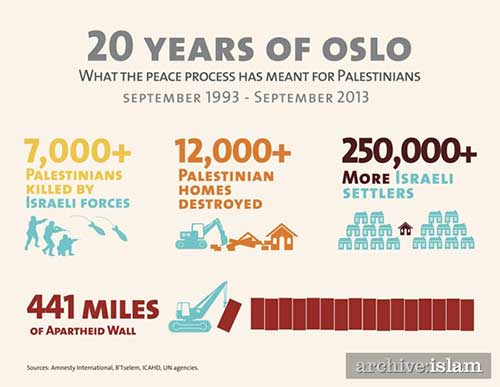
October 5, 2013
The Israeli and Palestinian negotiating teams met again on October 3 for the eighth time since direct peace talks were resumed in late July. No one but the eternally optimistic expects any meaningful result from these negotiations. The history of these negotiations is merely camouflage for the systematic annexation of the West Bank by way of settlement construction hoping that this will encourage Palestinian emigration. In short, a state for Palestine is but an illusion.
At the creation of Israel in 1947, the United Nations partitioned the land, allotting Jews 55 percent of Palestine. In the war of 1967, Israel conducted a pre-emptive strike against Egypt, Jordan and Syria. After the war, the remaining Palestinian territory was captured by Israel. Out of this captured land, Israel created the West Bank and the Gaza Strip by chopping up the land into isolated enclaves surrounded by Jewish settlements and Israeli occupation forces. The Palestinians lost 78 percent of their land to Israel and were left with 22 percent.
Under the United Nation’s Charter, there can lawfully be no territorial gains from war, even by a state acting in self-defense. Therefore, even if Israel’s action were to be considered defensive, its retention of the West Bank is unlawful.
What do the Palestinians want from the peace negotiations? Palestine has indicated that it would end all historic claims against Israel once they establish their state in the lands Israel occupied in the 1967 war. The Palestinians want to establish a state in the West Bank, Gaza, and East Jerusalem captured by Israel in the 1967 war. Israel has withdrawn from Gaza, but about a half million Israelis have settled in the other war-won areas.
Israel has erected a wall, which cuts deep into Palestinian territory, joining large Jewish settlement blocks to Israel, further confining the Palestinians to isolated enclaves. And Israel continues to establish new settlements (called outposts), demolishing homes and uprooting plantations in the process.
Back in March, Israel’s new housing minister said Israel will continue expanding Jewish settlements. And In August, Israel announced new bids to 1,000 new settlement units in the occupied West Bank and Jerusalem. To state the obvious, these settlements alone are fatal to any possibility of an agreement with the Palestinians. Does anyone really believe that Israel will agree to dismantle these settlements?
Where does the U.S. stand in all this? Had the U.S. intervened early on, it might have enhanced prospects for peace by convincing the Israelis to cease building settlements in the West Bank. Now we have a White House and a Congress that considers it political suicide to threaten to cutoff foreign aid, military aid or loan guarantees, to force Israel to cease building settlements. All that remains to the U.S. is bluster and outrage, which Israel and the Arab world have long realized signifies little or nothing.
This is the price we pay for lockstep support of Israel. As a result, the current peace negotiations, without Israeli land concessions, are doomed to fail.


 The Hunger Site
The Hunger Site
October 5, 2013 at 9:36 am
Neither the Palestinians or Israelis really want to make a deal.